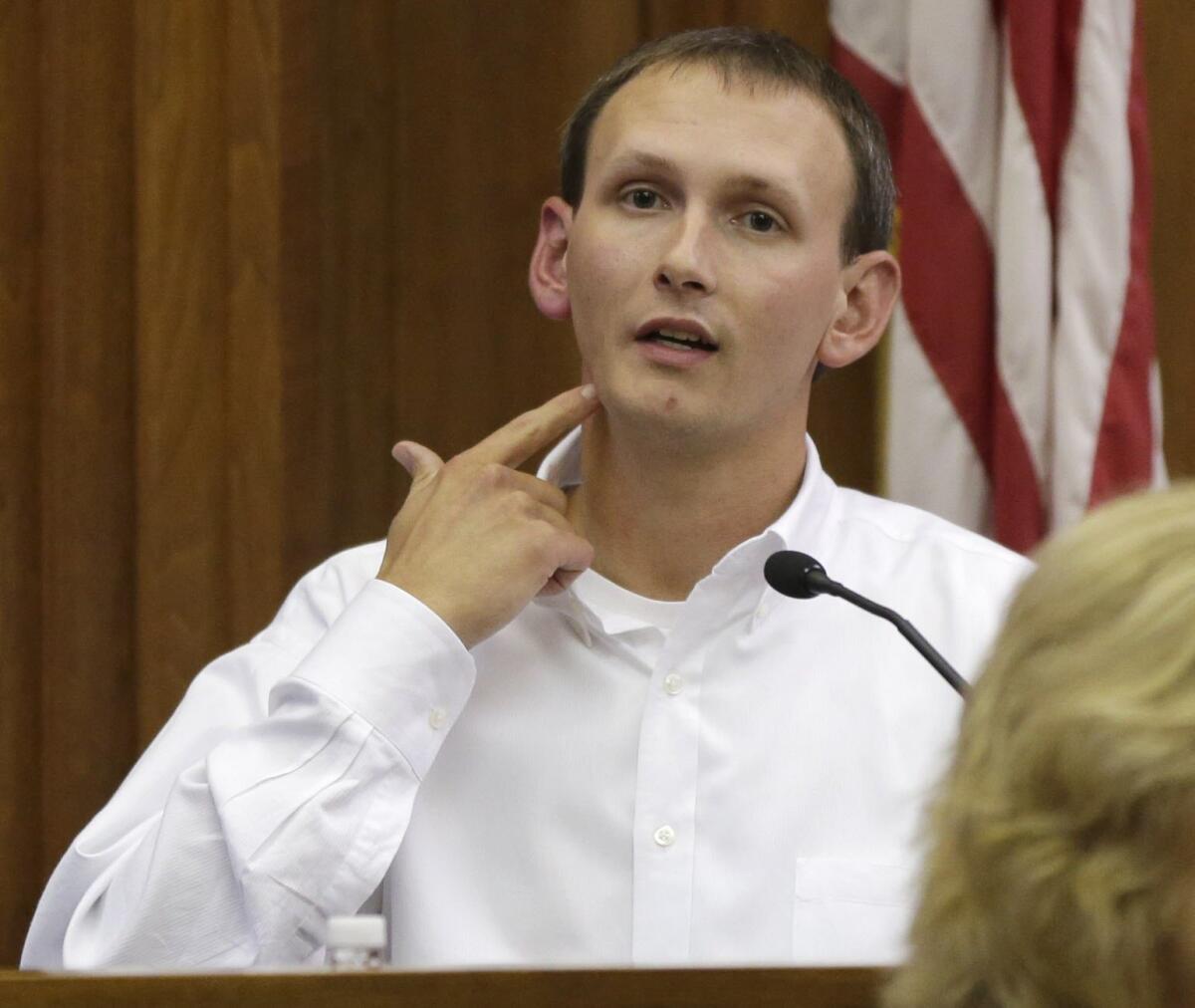Editorial: Milwaukee verdict a wake-up call for gun dealers

Milwaukee Police Officer Bryan Norberg describes being shot while testifying in court during the Badger Guns trial in Milwaukee on Oct. 5.
- Share via
In a case watched across the nation, a Milwaukee jury last week awarded nearly $6 million in damages to two police officers shot and gravely wounded in the line of duty six years ago. The defendants were the owners of a gun shop that sold the handgun used in the crime, despite clear evidence that the buyer was ineligible to make the purchase.
Why is this significant? A decade ago, the National Rifle Assn.’s water carriers in Congress adopted the Protection of Lawful Commerce in Arms Act, which shielded the entire firearms industry from most liability lawsuits. The law was a response to efforts by cities and shooting victims to hold the gun industry responsible for the grotesque damage caused by the use of their products. The Times editorial board described the act as “a spectacularly dangerous idea,” pointing out that such lawsuits had been crucial tools in shutting down six companies that had flooded the country with cheap “Saturday night special” handguns.
The Milwaukee case is one of only two lawsuits against gun dealers that have reached a jury since then. Both cases invoked a provision of the act that lifts protections from gun dealers if they violate federal gun-sales laws. In the first case, decided this year in Alaska, jurors absolved a gun dealer of liability after finding that it had legally sold a rifle later used to kill someone.
The Milwaukee jury, though, found ample evidence that the store clerk and the shop’s owners violated federal laws in a transaction captured by the store’s surveillance system. The video shows Julius Burton, who at 18 was three years younger than the minimum legal age to buy a handgun, pointing out to an older colleague which gun he wanted and helping him fill out forms. The clerk also helped: When the older man checked a box saying that he wasn’t buying the gun for himself, the clerk let him change it. The owners separately testified that they didn’t train workers, had not themselves read federal gun sale regulations and didn’t know what information was required on federal gun-selling forms.
The defendants’ lawyer said he plans to appeal, so who knows where this will end up. But the case at least shows that bad-actor gun dealers can still be held responsible, notwithstanding the unconscionably excessive legal protections that the 2005 act provides. The Milwaukee officers’ success may embolden other victims to target the worst of the offenders. That may not do much to cull the herd of gun dealers, but it might lead them to pay more attention to the laws under which they’re suppose to operate.
Follow the Opinion section on Twitter @latimesopinion and Facebook
More to Read
A cure for the common opinion
Get thought-provoking perspectives with our weekly newsletter.
You may occasionally receive promotional content from the Los Angeles Times.









